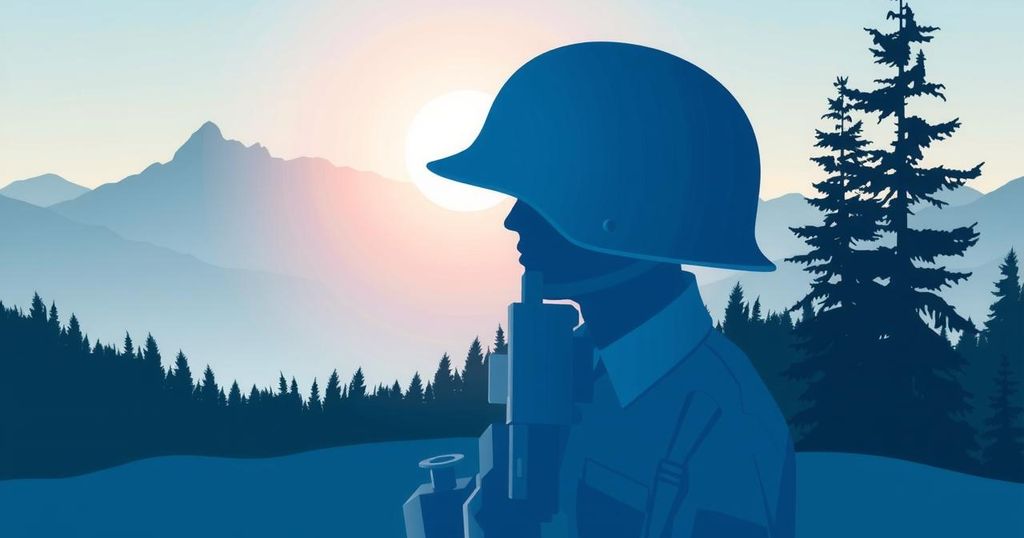Thirteen foreign peacekeepers were killed in clashes with the M23 rebel group in the Democratic Republic of Congo, escalating an already tense situation. The United Nations is withdrawing non-essential staff from Goma amid growing violence. International leaders are calling for an end to hostilities, as allegations of Rwandan support for the M23 further complicate the conflict and humanitarian crisis.
The ongoing conflict in the Democratic Republic of Congo (DRC) has recently escalated, resulting in the tragic death of thirteen foreign peacekeepers. Among the casualties are nine soldiers from South Africa, three from Malawi, and one from Uruguay, as they attempted to repel M23 rebel forces advancing toward Goma. French President Emmanuel Macron has intervened, urging both DRC and Rwanda to halt the violence amid increasing global concern.
In response to the deteriorating situation, the United Nations has begun withdrawing non-essential personnel from Goma, a city housing over a million residents. An emergency meeting of the UN Security Council, originally scheduled for Monday, has been moved forward to Sunday in light of the urgent need to address the escalating conflict. M23 rebels have demanded Congolese troops in Goma to surrender to prevent further bloodshed.
Tensions between the DRC and Rwanda have strained further, as the Congolese government accuses Rwanda of supporting the M23 rebellion. This diplomatic rupture coincides with the killing of a provincial governor by the M23, highlighting the perilous nature of the situation on the ground. Since the beginning of the year, M23’s control has expanded, leading to significant displacement and casualties among civilians.
Numerous nations, including the UK, France, Germany, and the US, have advised their citizens to evacuate Goma due to the escalating violence. Human Rights Watch has reported severe risks for civilians caught in the crossfire, noting that both the DRC army and M23 have committed grave abuses. The UN has cautioned that the humanitarian crisis in the region is deepening as a result of ongoing hostilities.
The M23, which emerged from a previous rebel faction in 2012, claims to protect the Tutsi population of eastern DRC, albeit critics maintain it exploits the region’s mineral wealth. There are allegations of Rwandan backing for the M23, which have been denied by Rwandan authorities. This complex situation remains fraught with historical grievances, particularly relating to the 1994 Rwandan genocide.
The Democratic Republic of Congo has been embroiled in conflict for decades, particularly in its mineral-rich eastern regions. The M23 rebel group, formed in 2012, originally emerged to defend the rights of the Tutsi community against persecution. However, accusations have arisen regarding its exploitation of the DRC’s vast natural resources, with claims of Rwandan support heightening tensions between the two nations. The recent clashes have prompted significant humanitarian concerns, as large displacements and injustices against civilians continue to unfold due to warfare. International interventions, including UN peacekeeping forces, aim to stabilize the region, yet the cycles of violence persist, exacerbating the humanitarian crisis.
In summary, the recent fatalities of thirteen foreign peacekeepers in clashes with the M23 rebel group underscore the urgency of addressing the escalating conflict in the Democratic Republic of Congo. International leaders, including French President Emmanuel Macron, are calling for diplomatic engagement to cease hostilities. The ongoing violence not only results in military casualties but also contributes to a worsening humanitarian crisis affecting hundreds of thousands of civilians. Immediate action and increased global attention are critical in resolving this complex and tragic situation.
Original Source: www.bbc.com






